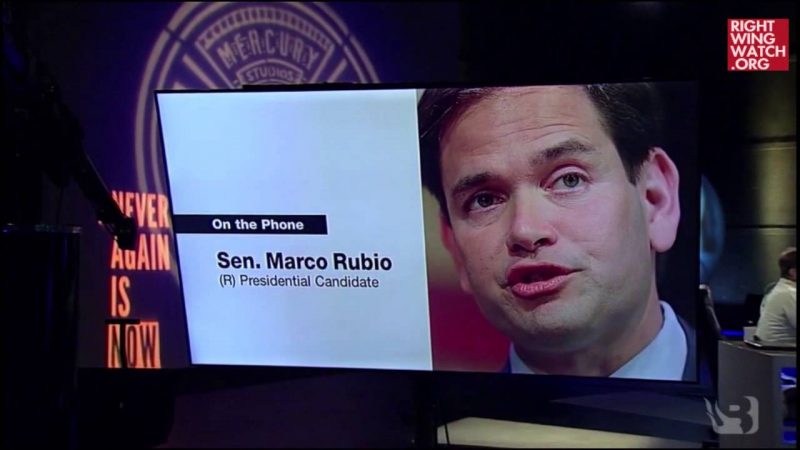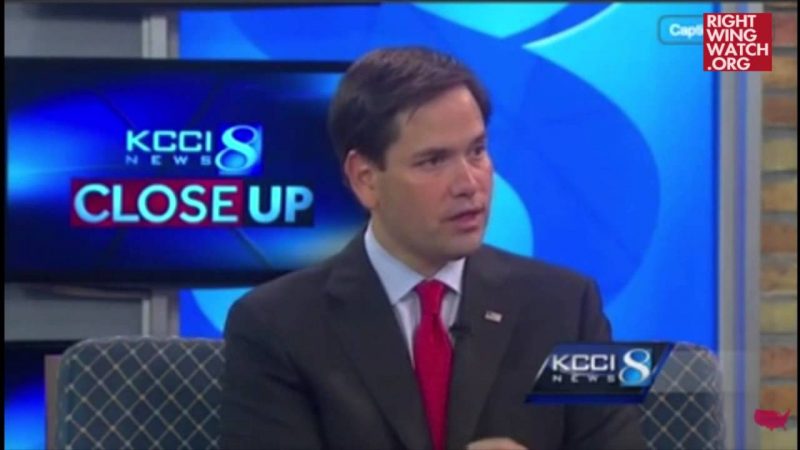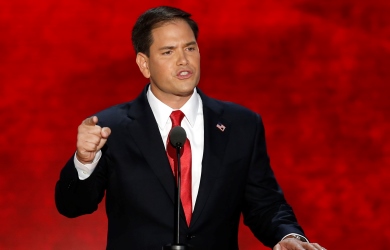In last week’s GOP presidential debate, Mike Huckabee made an explicit argument in favor of radical fetal personhood laws, claiming that Congress could pass a law granting rights to fertilized eggs and fetuses under the 14th and Fifth Amendments, thus criminalizing all abortion and possibly common forms of birth control in one fell swoop.
But one of Huckabee’s fellow candidates made a very similar comment, which has received less attention because he did not explicitly acknowledge the personhood movement. Here’s what Marco Rubio said when Fox News’ Megyn Kelly asked about his support for abortion bans that have contained exceptions for survivors of rape and incest, a deal-breaker for personhood proponents:
Kelly: You don’t favor a rape and incest exception?
Rubio: I have never said that. And I have never advocated that. What I have advocated is that we pass law in this country that says all human life at every stage of its development is worthy of protection. In fact, I think that law already exists. It is called the Constitution of the United States.
And let me go further. I believe that every single human being is entitled to the protection of our laws, whether they can vote or not. Whether they can speak or not. Whether they can hire a lawyer or not. Whether they have a birth certificate or not. And I think future generations will look back at this history of our country and call us barbarians for murdering millions of babies who we never gave them a chance to live.
As Katie McDonough at Fusion pointed out, Rubio’s answer was a “roundabout” personhood argument.
By saying that the Constitution already entitles fertilized eggs and fetuses to “the protection of our laws” and that Congress merely needs to “pass a law” stating that “says all human life at every stage of its development is worthy of protection,” Rubio seems to be arguing for a personhood bill such as that proposed by fellow GOP presidential candidate Rand Paul in the Senate. (Personhood proponents believe that there is a loophole in Roe v. Wade that allows a ban on all abortions and some common forms of birth control to be accomplished legislatively, rather than through a constitutional amendment.)
However, Rubio did not sign on as a cosponsor of Paul’s bill. And the Florida senator has supported abortion bans containing rape and incest exceptions, although he clarified after the debate he did so out of political necessity, not because he supports such exceptions.
Even anti-choice activists are unclear about what Rubio meant in his answer to Kelly. The Christian Post thinks that Rubio was taking the same position on Personhood as Huckabee. Personhood USA, the group behind state-level personhood ballot measures, was more skeptical, writing that while Rubio expressed a “noble sentiment,” he must “repent” for supporting laws containing rape and incest exceptions and “will have to clarify” his position.
What is clear is that Rubio’s answer was calculated to appeal to radical anti-choice activists without being immediately off-putting to viewers who are terrified of fetal personhood laws. Beyond that, he should be asked to clarify what his position on personhood really is.







